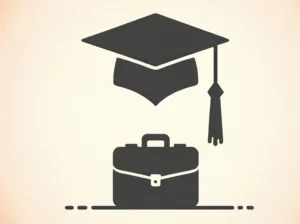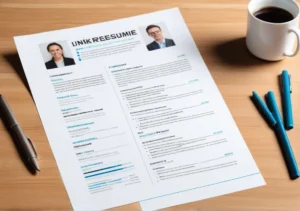We’ve all been there, standing on the edge of the future, diploma in hand, only to ask ourselves: “Now what?” The clamor of “get a job, any job” echoes in our ears, but it just doesn’t sit right in the gut, does it? Here, we’re going to explore not just career prep, but the true expanse of what education can unfurl in your life.
By the end of this article, you’ll have a holistic view of what education can mean beyond the job market, giving your purpose for learning a whole new dimension.
Quick Takeaways:
- Education empowers personal and societal growth, enriching our critical thinking and values, beyond the conventional job preparation.
- Lifelong learning through education enhances well-being and cultivates a spirit of inquiry, passion, and fulfillment that transcends earning potential.
- The skills gained from education, like communication, problem-solving, and self-directed learning, are invaluable tools for navigating all aspects of life.
What Are We Really Learning For?
Education is much like the root system of a towering tree – it’s not just there to keep the tree standing, but to nourish and allow it to grow and flourish. When we think about education, the immediate thought might be about landing a dream job or scoring a killer paycheck. But believe it or not, it’s much more than that. It’s about personal growth, critical thinking, citizenship, and setting ourselves up for a lifetime of curiosity and learning.
Sure, there’s a bit of tug-of-war between what society expects from us and what we yearn for personally. Schools and universities are often seen as factories, pumping out future workers tailored to job descriptions. But let’s step back for a moment. Education is also about crafting your ability to think independently, to challenge the status quo, and to build the muscle of your mind to tackle whatever life throws at you.
Take a moment and ponder – education isn’t just a stepping stone to your next paycheck; it’s a tool for lifelong learning. When you learn how to learn, you’re setting yourself up for endless possibilities, both professionally and personally.
Can Education Shape Who We Are?
Think about education as a painter’s palette, with each subject and idea adding a new color to your canvas. It has the power to influence our values, beliefs, and character development. Diving into subjects like history or literature can offer a window into other cultures and time periods, helping us to build a more inclusive and empathetic worldview.
Education exposes us to diverse thoughts, pushing us to question our preconceived notions and to understand ourselves and the world better. This broadened perspective can ignite passions we never knew we had and can help chisel out our place in the world.
For example, volunteering as part of a service-learning project can do more than just look good on a resume. It can shape your understanding of community needs and instill a lifelong commitment to giving back.
How Does Education Benefit Society?
In a world where misinformation is rampant, education is the beacon that guides us to the shore of knowledge. It cultivates informed citizens, crucial for a vibrant democracy where everyone’s voice matters. The more educated the populace, the more robustly we can engage in societal issues and make decisions that benefit the common good.
Let’s not forget the role of education in promoting social equity. By leveling the playing field, providing everyone with an opportunity to learn and grow, we’re building a society where success isn’t just reserved for the privileged few.
Education doesn’t just fill heads with facts – it enriches cultures and communities. It’s like a gardener tending to a diverse garden, where the beauty lies in the variety of its flora. It fosters appreciation for the arts and humanities, fueling cultural vibrancy and innovation. In turn, this leads to societal health where creativity and critical thinking are prized assets.
Consider the ripple effect of a single well-educated individual in a community; it can inspire others, raise collective aspirations, and contribute to a cycle of positive change – and that’s something that often flies under the radar.
In essence, while we gear up for our careers, let’s not overlook the profound and myriad ways education enriches us as individuals and as a society. Whether it’s learning about game theory in economics or exploring the principles of ethics in philosophy, every nugget of knowledge serves a purpose far greater than just the nine-to-five grind.
The real value lies in the less tangible benefits: the honed mind, the empathetic heart, and the enriched soul. It’s these elements that truly define an educated society. So, let’s not just learn for a job, let’s learn for life.
Is There More to Education Than Earning Potential?
Without a doubt, folks, education opens the door to enhanced earning potential. But let’s not forget, it has so much more to offer! Many of us are driven by a burning passion for our chosen field, an insatiable curiosity about the world, or a noble quest for knowledge just for the sheer joy of it. These are the very things that give color and depth to our lives, and they often start with a good education.
Let’s dive deeper into that, shall we? A study published in the prestigious Journal of Happiness Studies discovered that education contributes significantly to a sense of well-being and life satisfaction, independent of income. Education paves a path for us to explore our passions, providing the tools to turn dreams into reality.
Consider this: education shapes critical and creative thinkers poised to solve the puzzles of the universe, from the enigma of black holes to the mysteries of the deep sea. It nurtures poets and philosophers who ponder and present the big questions of our existence. It’s about stretching the mind, challenging assumptions, and sparking innovation.
So yes, education can lead to a solid paycheck, but it’s also about enriching the mind and soul. That’s the heart of lifelong learning – cultivating a mindset geared towards continuous personal growth and enrichment.
What Skills and Experiences Can We Gain Outside the Workplace?
Education isn’t all textbooks and theory. It’s also about building a toolkit of life skills that carry us through, well, life! It’s about grasping the art of communication, mastering the finesse of problem-solving, and shaping the agility we need to pivot in this ever-changing world.
Think about these gems picked up along the educational path:
- Communication skills: Articulating ideas clearly and effectively is invaluable, whether you’re ordering a coffee or negotiating a deal.
- Problem-solving: Life loves to throw curveballs, and education hones your ability to think on your feet.
- Analytical skills: Being able to dissect a problem and understand its components is like a superpower, I tell you.
- Time management: Juggling assignments teaches you to manage your most precious resource – time.
- Teamwork: Group projects, anyone? They might be a pain, but they sure teach us to play nice and lead effectively.
Beyond the classroom, education brings experiences like study abroad, where you’re not just learning a subject, but immersing in a new culture, picking up a language, and forming global connections. It opens doors to volunteering opportunities that enrich the soul and advance social skills while making a tangible difference in people’s lives. Then there’s internships, providing a sneak peek into potential careers, often filled with unparalleled insight that isn’t found in a textbook.
Here’s a unique point most overlook: education encourages self-directed learning – the ability to seek out information and learn independently. This is a game-changer in the digital age, where information is plentiful but the skill to harness it constructively is rare. Learners develop this competency as they pursue subjects they’re truly interested in, often going above and beyond the curriculum.
In essence, the skills and experiences gleaned from education extend far beyond the scope of a job description. Education lays the foundation for versatile life skills that we use to navigate and thrive in all areas of daily living. So, let’s cherish it not just as a means to an end but as a vital component of our personal and social toolbox.




![When to Ask for a Raise and How Much to Ask For? [Guide] planning budget writing expenses in notebook](https://howmonk.com/wp-content/uploads/2022/04/planning-budget-writing-expenses-in-notebook-300x200.jpg)

